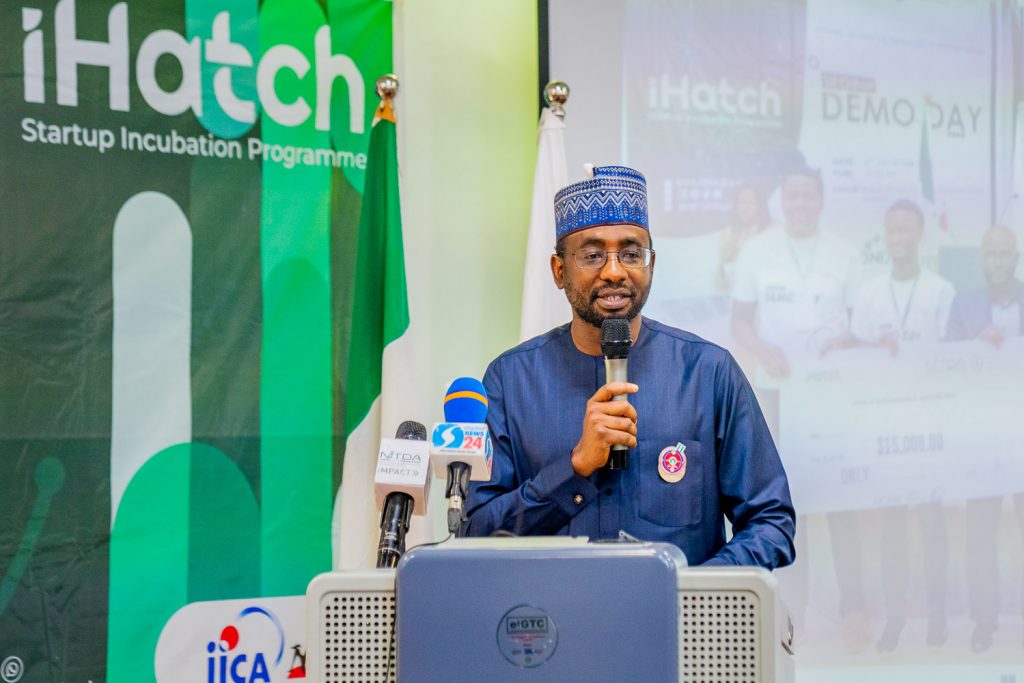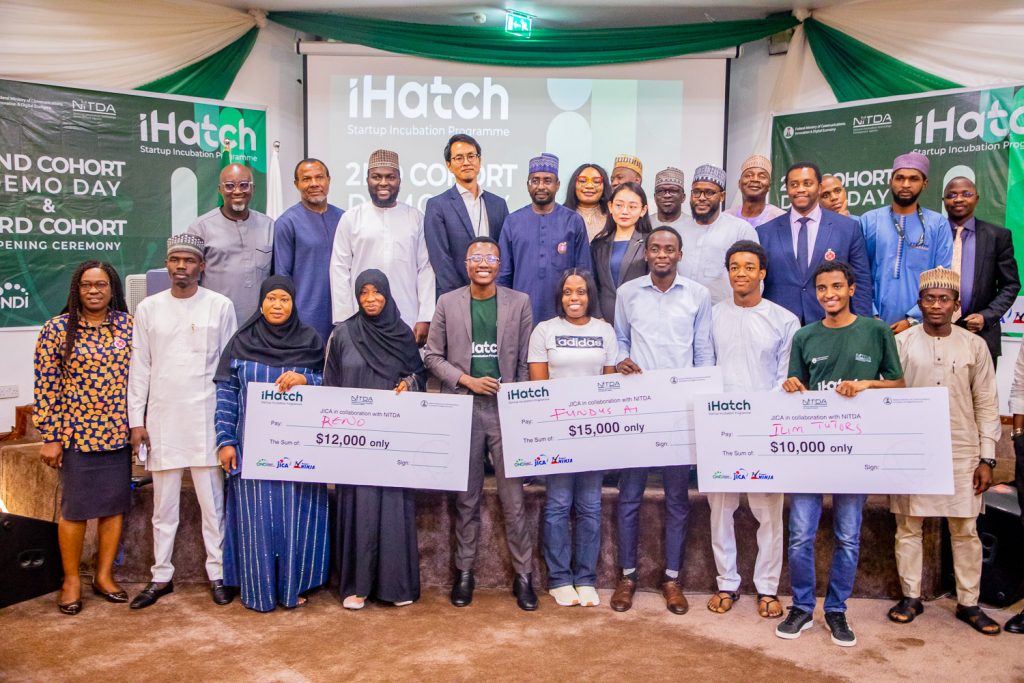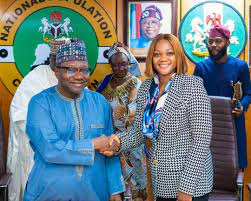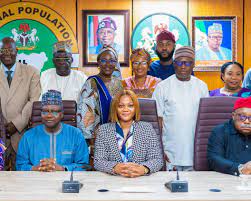Opinion
X-raying Buhari’s 3-year Infrastructure Development Drive
Published
5 years agoon

The coming on board of President Muhammadu Buhari’s administration in 2015 saw the merger of three key infrastructure ministries into a mega ministry known as the Ministry of Power, Works and Housing, with the mandate of facilitating the sectors’ development. In this review, PREMIER x-ray the progress so far recorded within the three years of Buhari’s stewardship.
Following his swearing in on the 29th May, 2015, President Muhammadu Buhari while delivering his inaugural speech, stated clearly that his administration would focus on the economy, fight against corruption, and provision of security. And under the economic reform programmes rolled out, the development of infrastructure, which was identified as a major vehicle through which any sustainable economic development can be achieved, was prioritised.
This must have informed the premium placed on the three economically key sectors of power, works and housing by Mr President to provide basic infrastructure and service needed to accelerate social and economic developments in the country.
On appointing and inaugurating his cabinet, the Hon. Minister of Power, Works and Housing, Barr. Babatunde Fashola assumed duty On 10th November, 2015 with a glowing zeal to tackle the underdevelopment challenges that have bedeviled these sectors largely due to neglect by successive administrations in decades.
Presenting the scorecard of his three years stewardship as the ‘Chief Servant’ of the ministry on 12 November, 2018, Fashola stressed that the ministry under his watch had fulfilled at least to a greater extend the campaign promises of Mr. President regarding infrastructure. The Super Minister, as he is fondly called, recalled that shortly after his inauguration and specifically on the 8th day of December, 2015, he prefigured what members of the public should expect in a statement titled “Setting the Agenda for Delivering Change” in which he set out what they inherited, what they planned to do, and what members of the public should expect thus:
“For the sake of consistency, let me refresh your memories by repeating some of what I said about each sector, as a benchmark for assessing our progress in the report which I will present shortly. With regard to our mandate on power supply, I promised that we will improve on the gas supply, increase the transmission capacity, pay MDA debts and generally improve your experience with power supply, first by getting incremental power, then proceed to stable power and hopefully reach uninterrupted power.
“With regard to works, I said as at May 2015, many contractors have stopped work because of payment and many fathers and wives employed by them have been laid off as a result. The possibility to return those who have just lost their jobs back to work is the kind of change that we expect to see.
‘‘And with regard to Housing, I said the Housing Sector presents an enormous opportunity for positively impacting the economy to promote not only growth but inclusion. I also said that government will lead the aggressive intervention to increase supply” starting with a pilot scheme,” he said, adding that virtually all that have been achieved going by what the government has achieved within the short three years that the administration has been striving to meet the yearnings of Nigerians infrastructurally.
Details of what has been achieved in each sector in the last three years were given in the Minister’s speech.
Road Sector (Works)
The Nigerian road sector no doubt may have witnessed unprecedented improvement going by the record of on-going and completed highway and bridge projects that cut across the 36 states and the FCT in the last three years that the present government boldly made known its intention to upgrade the country’s infrastructure which hitherto have been in utter decay.
When the Hon. Minister of Power, Works and Housing, Babatunde Fashola presented to the public a sketch of the achievement of the Buhari-led government regarding road rehabilitation, construction and maintenance, it became clear to many Nigerians that the government has been on its toe in a bid to deliver on its promises of revamping the country’s infrastructure as a gateway to sustainable socio-economic development.
When the Minister assumed office in November, 2015, the lamentation was that the ministry inherited about 206 road projects across the country, most of which were abandoned by the contractors mainly for lack of fund, and in a few cases, insecurity, with the attendant loss of jobs by thousands who were engaged and earning their living from those contracts. However, while presenting the scorecard of the 3 years, the Minister affirmed that contractors have since been mobilised back to the sites while thousands of job lost in the course of abandoning the projects have been recovered.
He explains: “We have recovered the thousands of jobs that were lost to public works.
“This recovery is the result of an expansive infrastructure spending that saw works budget grow from N18.132b in 2015 to N394b in 2018.
“The outcome is that there is not one state in Nigeria today where the Federal Government is not executing at least one road project and construction workers are engaged on these sites.
“Difficult or abandoned projects like the 2nd Niger Bridge, Lagos-Ibadan Expressway and the Bodo-Bonny Bridge have been brought back to life.
“Sections of Ilorin-Jebba, Sokoto to Jega, Sokoto-Ilela have been completed, while progress of works continues nationwide from Jada to Mayo Belwa, Enugu to Port Harcourt, Lagos to Otta, Ikorodu to Shagamu, Benin to Okene, Lokoja to Abuja, Kano to Maiduguri, Abuja – Kaduna, Kano to mention a few.
“Apart from recovered construction jobs and growth in construction sector of the economy, the feedback from road users is that the journey times are reducing on the completed roads. This is what we promised in my inaugural address.
“We acknowledge that the work is not finished, but as long as we remain able to finance the projects, I have no doubt that it will get better.”
‘‘The intervention on roads, as made clear by the ‘infrastructure’ Minister, does not stop on interstate highways. It has also entered 14 Federal Universities where unattended internal roads are now receiving attention.
The universities include: University of Nigeria, Nsukka; Federal University Oye, Ekiti; University of Benin; Federal University, Lafia; Fed University, Otuoke Bayelsa; Bayero University Kano; Federal University of Technology Owerri (FUTO); University of Maiduguri; Federal University, Lokoja; Federal Polytechnic Bauchi; Federal University, Gashua; Kaduna Polytechnic; Federal College of Education Katsina; and University College Ibadan’’.
“This is the First Phase under the 2017 Budget and we are preparing to do more under the 2018 Budget,” the Minister noted.
He also stated that even as rehabilitation and reconstruction works were on-going, maintenance of existing roads and bridges was not left to suffer.
“As we build roads, we are also attending to old or damaged bridges and restoring the value of maintenance.
“So, while the Loko -Oweto Bridge is nearing completion, the damaged Tatabu Bridge linking Ilorin and Jebba has been reconstructed and the Tamburawa Bridge in Kano, the Isaac Boro Bridge in Rivers, Eko Bridge in Lagos and the Old Niger Bridge that links Anambra and Delta are receiving regular maintenance attention,” he said.
Also during the briefing, the Ministry also gave statistics of road projects in the last three years. It said in 2016, 277 kilometres of road was constructed, 345km was rehabilitated and 17,749 people were employed in the process.
For 2017, the federal government constructed 488 roads, rehabilitated 256 others and engaged 31,227 persons. For 2018 till November, 497km of road has been constructed, 284 rehabilitated and 30,402 persons employed.
Expatiating on this, the Permanent Secretary (Works and Housing), Mr Mohammed Bukar said there have been award of 365 roads for construction since 2001. He said the Buhari government awarded 121 of these in three years while the previous government awarded 144 others in the whole of 17 years.
“You will see that out of the 365 roads, 144 were awarded in the period of 17 years while in just three years, we awarded 121 roads, just within three years and we are still counting because the 2018 procurement is on-going,” Bukar noted.
On the N206bn 2nd Niger Bridge being funded by the Nigerian Sovereign Investment Authority (NSIA), the ministry said about N31bn has been given to Julius Berger as advance which resulted in the significant record of pillars erected on site as the project is expected to be completed in 36 months.
Housing Sector
Section 43 of the 1999 Constitution of Federal Republic of Nigeria recognises the right of every citizen in Nigeria to own property, especially land and its resources.
Also, access to livable, safe and secured shelter is a fundamental human right as enshrined in Article 25 of the Universal Declaration of Human Rights and the Universal Declaration of Human Rights and International Covenant on Economic, Social and Cultural Rights.
Given that low income earners constituted over 80 percent of Nigeria’s active workforce, federal government needed to strike a balance between affordable housing for low income cadre and housing for selected Nigerians.
Currently, Nigeria is challenged with over 18 million housing shortfall despite the large number of completed and unoccupied houses dotting the landscape of major states in Nigeria.
To this end, the administration of President Muhammadu Buhari initiated and commenced the pilot phase of the National Housing Programme (NHP) in 34 states including the Federal Capital Territory (FCT), with the exemption of Lagos and Rivers states whose governors failed to donate land for the project.
The two agencies, Federal Housing Authority (FHA) and Federal Mortgage Bank of Nigeria (FMBN) under the ministry are also pushing for the provision of affordable housing to workers as seen in various projects and programmes.
The pilot phase of the NHP is directly executed by the federal government through the federal ministry of power, works and housing (housing sector).
The private sector may likely participate in the second phase depending on the acceptability of the designs by intending off-takers.
Premier Newspaper findings highlighted that the sum of N35 billion was budgeted for the project in 2016, about N41 billion from the N64.9 billion budgeted for capital spending in the housing sector 2017 budget was set aside for the project while in 2018, N35 billion was also budgeted for the project.
The essence of the project is to provide affordable homes for low income earners.
To achieve this objective, state governments and Federal Capital Territory (FCT) were asked to provide suitable lands on January, 2016 in their state capitals and municipal council areas.
The houses which are at various stages comprise of 1 bedroom, 2 bedroom and 3 bedroom semi-detached bungalows.
The NHP expected to add 2,736 units to the national housing stock, has provided about 13,680 direct jobs and 41,000 indirect jobs according to the Minister of Power, Works and Housing, Mr Babatunde Raji Fashola.
In order to eliminate issues bordering on abandoned projects and shoddy job, the former minister of state II for Power, Works and Housing, Mr Suleiman Zarma, accompanied by staff and media team embarked on massive inspection of federal government projects in Nasarawa, Benue, Plateau as well as other states.
Zarma disclosed that the aim of NHP is to build communities that would integrate with one another both within and around the estates.
Federal Housing Authority (FHA)
The preparation for Abuja Mass housing project, Zuba started in the second half of 2017 following the release of N5 billion from the federal government.
All technical documentations were done and the first phases of the award were carried out in February 2018 through selective tendering process while subsequent awards were done through open tendering process.
The Zuba project was initially planned for 16 nos 3 bedroom blocks of 8 flats, 25 nos 2 bedroom block of 8 flats, 10 nos 1 bedroom block of 16 flats and 5 nos 3 bedroom block of terrace duplex of 4 units, with a total of 508 housing units.
The Kwali mass housing site is another project undertaken by FHA to boost affordable housing.
Located at the Lambata, behind federal government college Kwali, it is a 305 hectares of land given to FHA under the Abuja Mass Housing Programme.
The Kwali project consisted of 12 blocks of I bedroom flat (192) and 8 blocks of 2 bedroom flat (64).
Contracts were awarded for the development of phase 1 of the land in May 2018 but due to conflicts in payment of compensation and poor weather conditions like rainfall, the project was relocated to Zuba as approved by FHA board.
With the relocation of 256 units from Kwali site, the project, expected to roll out 754 houses for off-takers comprising of civil servants and informal sectors has gulped the sum of N6.62 billion already.
The entire estate covers over 2.6 kilometres of 7m carriageway road with trapedozial drain.
Over N10 billion would be spent on the project upon completion and it is expected to be commissioned by President Muhammadu Buhari by the beginning of the second quarter in 2019.
Managing director of FHA, Prof Mohammed Al-amin, stated that many jobs have been created at the site which absorbed the services of skilled and semi-skilled labourers.
He noted that the idea is in line with President Muhammadu Buhari’s vision of creating jobs and wealth for Nigerians, stating that 35 percent of the houses have been sold to interested Nigerians.
Al-amin maintained that its Gombe mass housing project was completed in 2018 and sold out through the Federal Integrated Staff Housing (FISH) scheme anchored by head of service while payment was made to FHA through the National Housing Fund (NHF) managed by Federal Mortgage Bank of Nigeria (FMBN).
Al-amin hinted that the phase 1 of its Oshogbo project was completed and handed over to off-takers, noting that all elements of corruption and indiscipline would be eliminated from FHA.
He pointed out that the work progress was hindered due to the presence of some structures on the roadways and inaccessibility of some roads due to undefined boundaries with some adjoining public institutions like the LEA primary school.
He further advocated the increase for the agency’s budgetary allocation from N5 billion to N 50 billion, stating that it would create more jobs and circulate wealth for many Nigerians.
Senate Committee on Lands, Housing and Urban Development led by its chairman, Sen Barnabas Gemade and other members visited the site to access the level of work done.
Gemade was satisfied that the committee took the right decision at the parliament to integrate the FHA into the national housing scheme, noting that it is one of the most advanced stages of national housing projects around the country.
He assured that the committee would look into the request made by Al-amin to raise the agency’s budget to N50bn, which he described as ambitious.
Gemade commended the management of FHA in its efforts towards the re-birth of the agency, adding that the agency was almost going into extinction since 2002.
He kicked against constant bickering and numerous petitions received by the committee from disgruntled staff and contractors, noting that the notion that over 90 percent of contractors handling FHA projects must be members of staff is wrong and must stop henceforth.
Federal Mortgage Bank of Nigeria (FMBN)
The Federal Mortgage Bank of Nigeria (FMBN) has played a crucial role in providing shelter and loans for workers across the states.
The bank in partnership with the Nigeria Labour Congress (NLC), Trade Union Congress (NUC), and Nigeria Employers Consultative Association (NECA) commenced the construction of 1,400 affordable housing units for workers nationwide last year.
The Nasarawa and Kogi housing sites were the first of the fourteen locations to be used as the pilot phase of the programme, with 200 housing units expected to be constructed in each of the six geopolitical zones in addition to Lagos and Abuja.
The housing scheme is a product of strategic collaboration between FMBN and labour unions towards addressing the housing needs of its members estimated at 3.75million units.
The first phase of 100 housing units each in Kogi and Nasawara states were projected to be completed within six months.
The house types captured proven social housing models, comprising of one bedroom, two-bedroom and three-bedroom units, with prices ranging from N3.1 million to N8.3 million.
Also, the bank has expended N2.8 billion in the construction of 985 housing units in Enugu State for Nigerian workers contributing to the National Housing Fund (NHF) under the National Affordable Housing Delivery Programme (NAHDEP).
The FMBN has so far disbursed housing loans totaling N40.9 billion to 1,843 contributors, provision of home renovation loans totaling N14.072billion to 16,031 Nigerian workers, processing of N12.4billion refunds to contributors to NHF and registration of 224,752 workers to the fund.
Other innovative products undertaken by the bank include the rent-to-own scheme, where contributors could own a home and pay monthly or yearly rents over a 30-year period as well as the NHF individual housing construction loans that are payable over a 15-year period at interest rates of 7 percent.
Another notable effort is the reduction of equity contribution for accessing NHF loans to zero percent for N5m and below as well as 10 percent for N15 million and above.
The unveiling of FMBN digital platform code *219# for National Housing Fund (NHF) contributors was also a strategic move aimed at improving access to home ownership for workers.
The managing director/chief executive officer of FMBN, Arc Ahmed Musa Dangiwa, said it is the first time the bank and labour unions have synergised with stakeholders to develop a realistic and acceptable framework for delivering affordable housing to workers.
According to him, “The collaborative spirit provided an opportunity for labour leaders who understand the financial challenges faced by workers to make constructive inputs to the designs, pricing range and other relevant conditions for delivering the project”.
Dangiwa disclosed that the programme is targeted at shrinking the national housing deficit estimated at over 22 million units, stressing that the project is a departure from earlier social housing projects that was executed without considering the economic realities of the workers.
Also, the president of NLC, Comrade Ayuba Wabba commended the FMBN for boosting the partnership, noting that the project is laudable and would touch the lives of many Nigerians.
Ayuba lauded the Nasarawa state government for speedily providing land at zero cost, saying that the state workers contributing NHF would be excited with the project.
Family Homes Fund (FHF)
The Family Homes Fund (FHF) is another housing project domiciled in the office of the Vice President, Prof Yomi Osinbajo.
Through the fund, the presidency is expected to invest about N500 billion in five years for the construction of social and affordable housing.
The Special Adviser to the President on Economic Matters, Mr Adeyemi Dipeolu, hinted that government would release N100 billion yearly for the next five years to FHF with the intention of leveraging N1 trillion from the private sector.
Dipeolu confirmed that the money is meant for the construction of affordable housing, adding that Nigerians earning N30, 000 could buy houses through the FHF.
He emphasised that some houses had been completed in Nassarawa state while about 3,000 to 6,000 are under construction across the country.
Power Sector
According to reports from the Ministry, power generation was at 4,000 megawatts (MW) in when the present administration took over in May, 2015. Recent reports say it has increased to over 8,200 MW and transmission from 5,000 MW in 2015 to 7,000 MW while distribution has increased from 2,690 MW to 5,222 MW.
Despite the increase already recorded, Fashola emphatically stated that the work was clearly not finished, stressing that the Ministry was still in the process of delivering additional power to the grid.
According to him, the additional 215MW would come from the Kaduna Power Plant while 240MW would come from Afam IV, 40 MW from Kashimbila, 30 MW from Gurara, 29 MW from Dadin Kowa and a total of 3,750 MW from two big Hydro power plants in Zungeru (700MW) and Mambilla (3,050MW) while power is also programmed for nine universities and 15 markets across the country.
Also expected transmission expansion from 90 transmission projects nationwide to boost the capacities of the Distribution Companies to distribute power across the country, the Minister said adding that some of the transmission substations recently completed included Apo, Mayo Belwa, Damaturu, Maiduguri, Odogunyan and Ejigbo substations.
On distribution, the Minister explained that the sub sector is being boosted through over 100 injection sub-stations, a distribution expansion programme to be funded by the Federal Government. To this end, the government recently announced the approval of N72 billion distribution expansion program which is being implemented by the transmission company of Nigeria (TCN) in conjunction with the ministry.
While the Minister agreed that there are still much to do to give the consumer the best experience, he noted that the challenges posed by disruptions from time to time and people who also needed meters remain valid but stressed that, “it is indisputable that we have delivered on incremental power”.
Supporting his points with data, the Minister, recently quoted the 3rd Quarter 2018 report of the National Bureau of Statistics as revealing that Electricity made the highest contribution of 18 per cent to the 1.8 per cent growth in the nation’s Gross Domestic Product (GDP). He added that previous quarterly reports from 2017 had consistently recorded growth, which, he noted “is a clear departure from 2014-2015 and proof of change”.
On rural electrification as it relates to deploying Solar Power, Fashola while speaking at an interactive section recently recalled the “Thank You” visit of the Gora Community of Nasarawa State to his office to express their gratitude to the Federal Government over the provision of Solar Power to their Community saying it was a testimony to the growth in electricity supply and increasing accessibility to the rural communities.
The Community delegation, led by its Traditional Head, Alhaji Jafaru Adamu, thanked the government of President Muhammadu Buhari for initiating the rural electrification programme and the Minister for driving it adding that since the installation of the Solar electricity, the Community has consistently enjoyed several benefits hitherto not known to them, especially in the areas of social life, education and health.
Arguing against the reversal of the privatisation policy in that forum, Fashola, reiterated the existence of challenges in the sector which, but assured they were being dealt with.
He declared, “But you must decide in this country whether you want to continue to see devils or angels. I like to see angels; my glass is always half full and problems are opportunities for me to show that nothing is wrong with us and to benchmark what I have achieved. There are problems no doubt and we must deal with them”.
Speaking further on policy, he said as the policies on Mini Grids, Meter Asset Provider, Eligible Customer, and liquidity sustenance and improved governance deepen, the experience with power supply could only get better adding, however, that the success of the plans now would depend on “energy users who must conserve energy when not needed”.
Whatever your perspective may be the Minister is certain that the ordinary Nigerians now have course to say progress has been made in the power sector’’.
This is evident when he said, “As some citizens recently reported, they no longer have to iron all their clothes one week in advance as they previously used to do, because the supply is proving reliable and predictable even if not yet fully stable and uninterrupted. This is progress that we must move forward by consolidating on our mandate of change. We cannot go back”, the Minister declared.
These achievements in relatively shorter time may have triggered the Minister’s emotive bulk passing statement while fielding questions at the briefing on the poor road networks in the country. Fashola who admitted it said, “Yes, we know they are bad. There is no magic to it. If those who came before us had done their work, we won’t meet bad roads. That is the simple truth.
“We earned $100 per barrel of crude oil for about five years. We knew what other countries like Abu Dhabi (UAE), and Saudi Arabia did with their own. What did we do with ours? This is a President and a government that is now trying to do more with the less that it has. So give us some time, we will get there.
You may like
-


Osinbajo Has Betrayed Yorubas, Says Afenifere
-


APC Said Stone Us If We Fail After Two Years
-
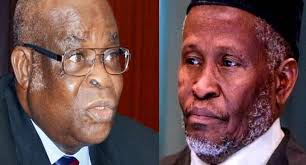

NJC Sets Up Panel To Probe Onnoghen, Acting CJN
-
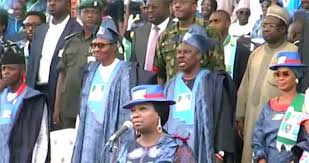

Oshiomhole Pelted With Stones, As Security Men Shield Buhari At Ogun Rally
-
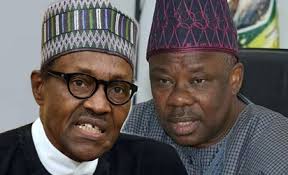

Amosun Campaigns For Both APC And APM At Buhari’s Campaign Rally
-


Buhari Expresses Hope In Resolving Zamfara APC Crisis
Opinion
IHATCH: JAPAN GOVERNMENT TASK TO LEVERAGE NIGERIA’S YOUTHFUL POPULATION- DG NITDA
Published
5 months agoon
December 3, 2023
By James Ishaku
As part of the current administration of President Bola Tinubu’s commitment towards creating meaningful opportunities for Nigerian youths, the Director General Of the National Information Technology Development Agency (NITDA), Kashifu Inuwa CCIE has called on the government of Japan to leverage on the youthful population through strategic talent partnership that will nurture and build a workforce that can be exported.
The DG made the call at the Ihatch startup incubation programme 2nd cohort demo day and 3rd cohort opening ceremony organised by the subsidiary of the agency, Office for Nigerian Digital Innovation (ONDI), in partnership with Japan International Corporation Agency (JICA) in Abuja.
Inuwa noted that the ihatch 5-month free intensive incubation programme executed by the ONDI and hosted within the National Centre for Artificial Intelligence and Robotics (NCAIR) is designed to help Nigerian tech entrepreneurs refine their business ideas through a series of coaching, lectures, and booth camps to develop scalable and adaptable business models that willfocus on youth, innovation, entrepreneurship, and technology.
He added that the incubation programme will be held simultaneously in Abuja, Lagos, Port Harcourt, Gombe, and Kano and JICA has agreed to extend the Fourth Cohort across each of the 36 States and the FCT. This is to enable wider reach and to stimulate the startup ecosystems across the States.
The DG stated that not fewer than 1,218 applications were received for the Second Cohort and the number was pruned down to 8 startups, comprising 16 persons, a Founder and Co-Founder for each startup, after undergoing levels of rigorous selection process conducted by a panel of judges, comprising experts in diverse areas of technology and innovative entrepreneurship.
He explained that the selection process assessed the startups’ ideas based on the criteria of profitability, scalability, social impact, idea technique, competitive advantage, experience, and a clearly defined future roadmap.
Inuwa further revealed that a total of 11,183 applications were received from across the 6 geopolitical zones for the Third Cohort. This culminated in the selection of the top 8 startups, comprising 16 founders in total that will participate in the Third Cohort that was launched.
He added that 16 startups that participated in the first and second cohorts of the iHatch incubation programme have moved on to achieve remarkable success in the areas of job creation, funding, participation in events, and valuable partnerships which have created a combined total of 179 direct jobs in the span of agriculture, health, education, and e-commerce sectors.
The DG further asserted that apart from the total grant of US$45,000 (US$15,000 each) for Proof of Concept (POC) to the top 3 startups in the first cohort, some of the startups have raised some funding through other sources. Xolani Health (a health tech startup from the first cohort) secured a grant worth US$155,000, BetaLife (a health tech startup from the first cohort) secured an angel investment of US$60,000, Gifty (an e-commerce startup from the second cohort) got a grant of USD$8,000 while two other startups from the first and second cohorts respectively, raised a combined total grant of US$6,000.
Inuwa affirmed the agency’s commitment to working with relevant stakeholders and partners towards the successful implementation of the Nigeria Startup Act (NSA) which will accelerate innovation and provide much-needed jobs for our teeming youths. Leaving nothing to chance in our resolve to nurture the entrepreneurial spirit in our youth to catalyze the Nigerian digital economy to the next level.
The Honourable Minister, Federal Ministry of Industry, Trade and Investment, Doris Nkiruka Uzoka-Anite, represented by National Coordinator, National Talent Export Programme, Dr Femi Adeluyi, applauded NITDA for the various initiatives and programs put in place for the advancement of the tech ecosystem in the country.
Anite noted that the NITDA DG at the Digital Nigeria International Conference 2023 edition harped on the need for Nigeria to become the talent destination of the world where countries will come to seek a workforce that will work with them towards achieving their goals and objectives.
She added that “technology is a pivotal tool in all aspects of life which cannot be overemphasized and the green transition scoreboard global total has reached about $7.13 trillion for export and about $6.6 trillion for importation, the important aspect is that 54% of these activities is digitally edible and prepares people to be effective and efficient in the different sector of the economy is laudable”.
The Minister also appreciated JICA for its relentless efforts toward the advancement of the tech ecosystem in the area of automobile, development, training, scholarships, interventions and a lot more which has impacted the citizens directly or indirectly.
The Ambassador of Japan to Nigeria, Matsunaga Kazuyoshi, represented by Yuzurio Susumu Chief of Nigeria Office in his remarks stated that Nigeria is the most popular country in Africa and the heart hub of entrepreneurship activities aimed towards the advancement of the country.
He added, “With all the challenges faced by insecurity, and limited infrastructures in the country, Nigerian startups are demonstrating remarkable creativity and resilience in developing solutions that other critical social issues in areas such as education, transportation, healthcare and finance”.
He added that the present administration has identified the transformation potential of startups and digitization making it a key factor in diversifying the Nigerian economy from its dependence on oil.
The Ambassador pointed out that startups are seen as a catalyst for business transformation, bringing fresh ideas, innovative technologies and new employment opportunities. Japan has the longest history of technological innovation and entrepreneurship has a significant role in supporting the Nigerian system.
Among those who attended were representatives from both the private and public and the top three (3) startups emerged with cash prices to Fundus AI 1st postion $15,000.00, Reno 2nd postion with $12,000.00 and Ilim Tutors 3rd postion $10,000.00 respectively.
Coker – Odusote: 100 Days at the Helm of NIMC
By Walter Duru, Ph.D
It was Albert Einstein that once said that “setting an example is not the main means of influencing another, it is the only means.” That sentiment expressed by Einstein is the primary essence behind the theory of transformational leadership, which requires passion, charisma, and the ability to motivate others. Transformational leaders are usually very authentic, emotionally intelligent, great listeners, results-focused, visionary, and self-aware.
In just 100 days at the helm of the National Identity Management Commission (NIMC), Engr. Abisoye Coker-Odusote has ushered in a new era of transformational leadership, leaving an indelible mark on the organization. Her eventual confirmation as substantive Director General/Chief Executive Officer of the Commission did not come to many as a surprise.
She did not waste time to hit the ground running and showed commitment to advancing the NIMC’s mission and mandate.
Coker-Odusote has taken steps to streamline National Identity Number (NIN) registration processes, while addressing the long-standing challenges associated with identity registration in Nigeria. This, she is handling through strategic restructuring and the integration of advanced technologies with a view to significantly reduce waiting time and enhance the overall efficiency of the system.
Today, date of birth and other kinds of modifications at NIMC happen within 48 hours. The several years backlog of date of birth modifications she inherited are almost cleared, as she had given a one-month deadline for the same to relevant staff of the Commission.
Again, responses to issues and complaints, such as those whose National Identity Numbers did not hit the NIN Verification Portal are now resolved within 24 hours.
Recognizing the paramount importance of data security in the digital age, the NIMC CEO has taken steps to enhance data security by introducing robust measures to fortify the protection of citizens’ sensitive information. This includes, but not limited to the adoption of cutting-edge encryption technologies and the establishment of a dedicated cybersecurity team.
Her interest in improving service delivery at NIMC cannot be overemphasized. She has concluded plans to ensure regular training and retraining for staff of the Commission, emphasizing customer-centric approaches, to ensure a more positive experience for citizens seeking identity services.
On partnerships, Coker-Odusote, leveraging her extensive network and expertise, has forged strategic partnerships with governmental agencies, private organizations, and international bodies. These collaborations aim to enhance the NIMC’s capacity, foster innovation, and promote information sharing for the betterment of identity management.
Understanding the pivotal role of technology in modernizing identity management, Engr. Coker-Odusote has spearheaded the integration of biometric advancements and artificial intelligence into the registration and verification processes.
This not only improves accuracy, user experience and ease of enrolment, but also positions NIMC at the forefront of technological innovation in identity management. A typical example is the NIMC Contactless Biometric Solution, which delivers a best-in-class fingerprint and facial capture image output quality, powered by Artificial Intelligence. The new solution was unveiled by the commission at the 2023 Identity Day, held in Abuja on September 16, 2023.
In addition, Engr. Coker-Odusote tackled the existing backlog of unprocessed identity requests head-on. Through a combination of strategic staff deployment and redeployment, process optimization, and digitization initiatives, she has made significant strides in clearing the backlog, demonstrating her commitment to prompt and efficient service delivery.
Recognizing the crucial role played by the NIMC staff in achieving organizational goals, the CEO has developed for implementation, a robust welfare programme aimed at boosting morale and fostering a positive work environment. This includes, but not limited to training opportunities, health benefits, and performance recognition initiatives.
Furthermore, in consultation with in-house experts, elaborate public awareness campaigns are being planned, to ensure that citizens are well-informed about the importance and benefits of identity registration. These campaigns are expected to not only educate the public, but also serve to demystify the registration process, encouraging greater participation.
The NIMC DG has concluded plans to take the ecosystem enrolment forward by taking steps to deepen collaboration with ecosystem implementing partners, supporting to ensure the success and optimal performance of the Nigeria Digital Identification for Development (ID4D) Project, a Nigerian Project jointly funded by The World Bank, The European Investment Bank, and the French Development Agency.
Engr. Coker-Odusote’s strategic vision, commitment to efficiency, and emphasis on technological innovation positions NIMC for a future where identity management is not only secure but also seamlessly integrated into the daily lives of citizens.
On anti-corruption, the NIMC DG has left no one in doubt on her determination to sanitize the system, entrench a culture of transparency and zero tolerance for corruption. Apart from putting systems and structures in place to discourage graft, she is directly involved in ensuring that the cankerworm has no place in the commission.
Just recently, in what one may describe as a sting operation, she paid an unscheduled visit to the Federal Capital Territory office of the commission, where she is reported to have arrested some staff for allegedly extorting money from Nigerians, even as she has maintained that enrolment was free.
Her devotion to supporting the policy direction of the present administration by strengthening the issuance of the NIN for access to service is not in doubt.
Speaking on Coker-Odusote’s first 100 days in office as NIMC CEO, Project Coordinator, Nigeria Digital ID4D Project, Musa Odole Solomon described her as a vibrant, results-focused leader, determined to make a difference in the Commission.
“She has taken steps to build bridges of collaboration between NIMC and partners within the country’s identity ecosystem. These collaborations aim to enhance the NIMC’s capacity, foster innovation, and promote information sharing for the betterment of identity management in Nigeria.”
“The collaboration is also focused on enhancing handshake with institutions involved in the country’s identity ecosystem, with a view to deepening integration with the country’s Identity Management System.”
“In 100 days, she has taken the lead in working with the Nigeria Digital ID4D Project to speed up project implementation process, especially, processes geared towards the extension of NIN enrolment to hard-to-reach areas, women, persons with disabilities, and marginalized groups, thereby fostering inclusion and access to social services.”
“She has introduced some innovations that I consider very progressive, and things are moving very well. The Nigeria Digital ID4D Project is happy to work with her, as she has shown that she has all it takes to assist us succeed.”
Responding to a question on his impression about the NIMC DG’s leadership style and the future of the relationship between NIMC and his organisation, Chairman, National Population Commission (NPC), Hon. Nasir Isa Kwarra stressed that the relationship between NIMC and NPC has become more robust under Coker-Odusote’s leadership as NIMC CEO.
“I want to say that the National Population Commission has a long and robust collaborative partnership with the National Identity Management Commission (NIMC) in our efforts to harmonize and integrate biometric databases for planning and development of our country.”
“However, this partnership has become more dynamic and robust with the assumption into office of Engr. Abisoye Coker-Odusote as the Director General of NIMC. She has shown an unparalleled commitment and passion in working with the Commission, not only in registration of births and deaths, but also the upcoming population census. She comes across as a thoroughbred professional and innovator who will give Africa’s greatest nation a deserved identity profile for national unity, security, and development. I am more confident in the future of the Identity Management Commission under her.”
Responding to a question on the new grounds covered at the NIMC ICT, Director, IT/Identity Database of the Commission, Chuks Onyepunuka has this to say:
“Our DG is pragmatic, proactive, result-oriented and visionist. Her achievements in ICT in NIMC in the last 100 days include, but not limited to: “launching of self-modification and enrolments services to ease and simplify the processes for enrolment services; driving the clearing of about 3 million backlog of enrolment records awaiting manual adjudication within 3 weeks; decentralization of operations with objectives of ensuring that we are closer to the enrolees and adequate coverage in the nooks and crannies of the country.”
“Others are improvement in the process of engaging and revalidating our Frontend Enrolment Partners (FEPs); improvement in our ICT policies, processes and procedures; resolution of 95% challenges/issues affecting our window enrolment software (Res-Web) and commenced the integration and harmonization with National Population Commission, Nigeria Immigration Service and Federal Inland Revenue Service (FIRS).”
Adding her voice, NIMC’s Director, Business Development and Commercial Services, Mrs. Carolyn Folami described the DG as a thoroughbred professional, committed to resetting the Commission for the good of the nation.
“It has been only 100 days, but it seems she has been here far longer, as within this period, we have achieved a couple of goals towards resetting the NIMC agenda and resettling the NIMC staff for productivity.”
“Starting with the planning and commencement of training of all staff, to the commitment to all Front-End Partners (FEP) to revalidate the business model for fair play and payment. She is very keen on stakeholder engagement and has secured the buy- in of our harmonisation partners for effectiveness. She is professional, thorough, dedicated, and above all, kind to all.
Adding his voice, Monitoring and Evaluation Specialist, Project Implementation Unit, Nigeria Digital ID4D Project, Dr. Emmanuel Akogun argued that Coker-Odusote’s first 100 days in office were characterised by “dynamic, focused and results – oriented leadership,” adding that there is steady progress in NIN enrolment, with “103,500,000 Nigerians and other legal residents captured in the NIMC Database.”
There is therefore no gainsaying the fact that Engr. Abisoye Coker-Odusote’s first 100 days as CEO of the NIMC have been marked by a series of commendable achievements.
At this point, one can confidently say that with Engr. Bisoye Coker-Odusote as Chief Executive Officer, NIMC is in safe hands.
Her recent confirmation as substantive Director General/CEO of the Commission is clearly an act of patriotism by the Nigerian President, Bola Ahmed Tinubu.
However, as she commences a full tenure of office, following her recent confirmation, one expects that the standard is not lowered.
As she marks 100 days in office this week, the most challenging part of Abisoye Coker-Odusote’s journey as Chief Executive Officer of the NIMC is the need to sustain the successes recorded, remain focused, deepen stakeholder engagement and public enlightenment, check corruption, strengthen systems and structures, be fair to all, while supporting the policy direction of the present administration.
Deliberate steps must be taken to ensure the sustenance of the war against extortion at NIMC.
Again, a deliberate plan should be in place to ensure a more robust stakeholder collaboration, particularly with those involved in the country’s identity ecosystem.
Elaborate, sustained communication and public enlightenment activities are required, taking advantage of the conventional and unconventional channels of communication to inform, educate and mobilize the citizens on the need for all to register for the NIN. This requires a deliberate strategy and strategic implementation.
Finally, a deliberate inclusion strategy must be in place and vigorously implemented to ensure that no one is left behind.
As the DG continues to lead with passion and purpose, NIMC is poised for even greater accomplishments under her guidance.
Indeed, NIMC is in safe hands!
Dr. Walter Duru (Assistant Professor of Communication and Multimedia Design) is a Communication/Public Relations Strategist, Researcher and Consultant. He could be reached on walterchike@gmail.com
Opinion
Telecoms: Operators seek strict harmonised RoW charges
Published
5 months agoon
November 25, 2023AJAGBE ADEYEMI TESLIM
SPONSORED BY: H&H
Telecom operators have urged the federal government to make a policy that will make the charges on the Right of Way (RoW) uniform across the country.
According to them, the issue of RoW has been a major challenge hindering the deployment of telecom infrastructure while the infrastructure is vandalised in some areas.
Right of Way charge is a levy paid by telecommunication companies to state governments, permitting telecommunication companies to dig up the roads and install telecommunications hardware such as optic fibre cables that carry internet traffic.
The Right of Way charge has been fraught with inconsistencies across the states in terms of charges and has negatively impacted broadband infrastructure.
To harmonize the Right of Way charges for broadband infrastructure investment, the Federal Government, in 2017, through the National Executive Council (NEC), approved a policy, which resulted in a RoW Charge Agreement reached with all the governors of the 36 states of Nigeria.
However, the RoW Charge Agreement is yet to be fully adopted by the 36 States, and in recognition of the slow uptake by the States, the former Minister of Communication and Digital Economy, Isa Pantami, on January 14 2020 in a press statement called on states to implement the harmonization of the RoW charges for obvious benefits for the sector such as deepening development/growth in broadband infrastructure, and reducing the transfer of RoW charges costs by telecommunications companies to customers.
January 2020 recorded a step in the right direction when the Nigerian Governors Forum accordingly resolved that telecommunication operators were to pay N145 (approximately $0.37) per linear metre to lay fibre cable anywhere in the country.
Meanwhile, despite these, the telecom operators have continually complained about the different charges leveled by different states for the Right of Way.
According to them, the issue of the RoW has been worrisome affecting the laying of telecom infrastructure in some states in the country.
They said this has also been the bane of telecom services in some areas, especially in the cities where people do not enjoy the services.
The operators noted that if there is harmonisation and every state in the country abides by the rule, telecom services will be everywhere across the country.
“If such policy is wrong and strict, there will be unification in the charges for the Right of Way by all the states. And even the payment will be easy. And to make the policy strong, the Federal Government must declare telecom infrastructure as national infrastructure.
Once it becomes a national infrastructure, you don’t need to talk about being paid or not being paid.
All that the telco company needs to do is to pass through the agency that is in charge. You write the agency and get your cables laid.
Except the Right of Way affects someone’s building, which is very difficult. If it affects someone’s building, that is a different thing, but if it does not, what you just need is to get approval from the agency in charge. If this is achieved, the broadband penetration we are talking about will be easily expanded,” telco operators said.
Trending
-

 News5 years ago
News5 years agoBreaking: ‘Penalty’ Crooner Small Doctor Caught in Possession of Fire Arms
-

 News5 years ago
News5 years agoTiffany Trump Is Dating a Millionaire Michael Boulos From Nigeria
-

 News5 years ago
News5 years agoPDP Set To Cause Panic Days To Polls: FG
-

 News5 years ago
News5 years agoINEC Engages EFCC, FIU In Tracking Campaign Funding
-
News2 years ago
INEC Publish Final List of Candidates For 2022 Osun Governorship Poll
-

 Politics5 years ago
Politics5 years agoPDP Alleges Plot by APC, Presidency to Detain Its Leaders
-

 Politics5 years ago
Politics5 years agoOsinbajo Has Betrayed Yorubas, Says Afenifere
-

 Politics5 years ago
Politics5 years agoLagos Commissioner Decamps To PDP






